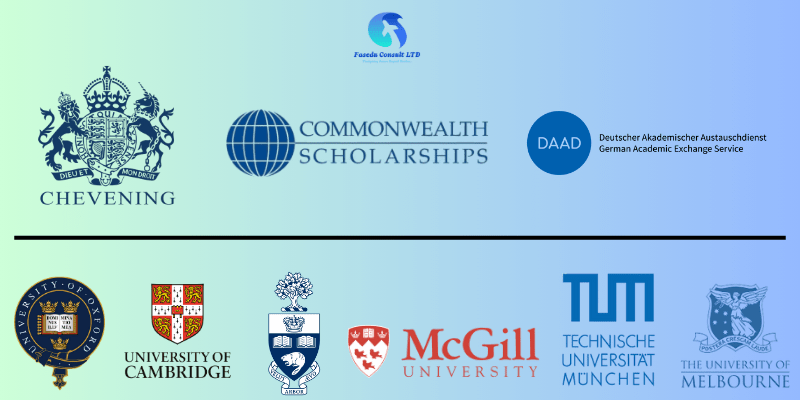Work Opportunities in Norway for Foreigners
What Are The Work Opportunities For Foreigners In Norway? Norway offers jobs for foreigners in oil and gas, technology, healthcare, engineering, education, and tourism. Salaries range from NOK 300,000–1,500,000 annually depending on role and experience. Most skilled worker visas require a job offer, recognized qualifications, and sometimes Norwegian language skills. Norway, with its stunning landscapes, progressive society, and strong economy, is a dream destination for many professionals looking to work abroad. Known for its high quality of life, good pay, and friendly culture, Norway offers a unique chance to grow both personally and professionally. Whether you’re a student, a professional, or someone seeking a fresh start abroad, Norway provides opportunities across many industries. This guide will explain the key sectors offering work opportunities for foreigners, eligibility criteria, salary expectations, challenges you may face, and tips for successfully navigating the Norwegian job market. By the end of this article, you’ll have a clear understanding of what it takes to build a rewarding career in Norway as a foreigner. Why Work in Norway as a Foreigner? Here are some reasons why Norway stands out as an ideal place to work: High Quality of Life:Norway consistently ranks among the best countries for quality of life, healthcare, education, and social welfare. Its clean environment, efficient public transportation, and robust social safety nets make it an ideal place to live and work. Competitive Salaries:Salaries in Norway are among the highest in the world, ensuring financial stability even with the country’s relatively high cost of living. Work-Life Balance:Norwegians prioritize work-life balance, with shorter working hours (typically 37.5 hours per week), generous vacation policies, and parental leave benefits that are among the most progressive globally. English Proficiency:English is widely spoken, especially in urban areas and workplaces, making it easier for non-Norwegian speakers to adapt. Inclusive Society:Norway values diversity and inclusion, offering equal opportunities for all. The country also has strong labor laws that protect workers’ rights. Sustainable Practices:Norway is a global leader in sustainability, focusing on renewable energy, green technologies, and environmentally friendly practices. This aligns well with the growing demand for eco-conscious careers. Key Industries Offering Work Opportunities for Foreigners Norway’s economy is driven by several thriving sectors. Here are the industries where foreign professionals can find promising opportunities: 1. Oil and Gas Norway is one of the largest oil and gas producers in Europe, with companies like Equinor leading the way. Despite its push toward renewable energy, the sector remains a significant contributor to the economy. Roles in Demand: Engineers (petroleum, mechanical, electrical), project managers, safety officers, technicians, and environmental specialists. What You Need: A relevant degree, certifications (e.g., NEBOSH for safety roles), prior experience in the energy sector, and knowledge of Norwegian regulations. Salary Range: NOK 600,000–1,200,000 per year ($60,000–$120,000 USD). 2. Technology and IT Norway is investing heavily in digital transformation, creating demand for tech professionals. Cities like Oslo and Bergen are home to startups and innovation hubs. Roles in Demand: Software developers, data analysts, cybersecurity experts, AI specialists, IT consultants, and DevOps engineers. What You Need: A degree in computer science, relevant certifications (e.g., AWS, CISSP), and proficiency in programming languages like Python, Java, or C++. Experience with cloud computing and agile methodologies is highly valued. Salary Range: NOK 500,000–900,000 per year ($50,000–$90,000 USD). 3. Healthcare With an aging population, Norway faces a growing demand for healthcare professionals. The universal healthcare system ensures stable employment opportunities. Roles in Demand: Nurses, doctors, physiotherapists, caregivers, and mental health professionals. What You Need: Valid qualifications, registration with the Norwegian Directorate of Health, and proficiency in Norwegian (B2 level or higher). Some roles may require additional certifications or training. Salary Range: NOK 450,000–700,000 per year ($45,000–$70,000 USD). 4. Engineering and Construction Infrastructure development and renewable energy projects are booming in Norway. The government’s commitment to sustainability drives demand for skilled engineers and construction professionals. Roles in Demand: Civil engineers, environmental engineers, architects, construction managers, and project coordinators. What You Need: An engineering degree, relevant certifications, and experience in sustainable design or renewable energy. Familiarity with BIM (Building Information Modeling) tools is an advantage. Salary Range: NOK 550,000–950,000 per year ($55,000–$95,000 USD). 5. Education and Research Norway’s universities and research institutions welcome international academics and researchers. The focus on innovation and sustainability creates exciting opportunities in academia. Roles in Demand: University lecturers, researchers, PhD candidates, and administrative staff. What You Need: An advanced degree (Master’s or PhD), publications in reputable journals, and fluency in English. Teaching positions may require pedagogical training. Salary Range: NOK 400,000–800,000 per year ($40,000–$80,000 USD). 6. Tourism and Hospitality Norway’s tourism industry thrives on its natural beauty and cultural heritage. Popular destinations like Tromsø, Bergen, and Lofoten attract millions of visitors annually. Roles in Demand: Hotel managers, tour guides, chefs, hospitality staff, and travel agents. What You Need: Relevant experience, customer service skills, and basic Norwegian language skills. Certifications in hospitality management or culinary arts are advantageous. Salary Range: NOK 300,000–500,000 per year ($30,000–$50,000 USD). Types of Work Visas in Norway Norway offers various types of temporary work visas depending on your profession and purpose of stay: Skilled Worker Visa:For professionals such as engineers, IT specialists, healthcare workers, teachers, and others. A valid job offer is mandatory. Seafarer Visa:For crew members working on Norwegian ships and vessels. Specialist Visa:Designed for technical experts transferring within multinational companies. Start-Up Visa:Available for innovative entrepreneurs who secure funding and support from investors. Self-Employed Visa:For freelancers and self-employed individuals who can demonstrate future earnings potential. Seasonal Worker Visa:Ideal for short-term jobs in agriculture, tourism, and hospitality sectors. EU/EEA Visa:EU/EEA citizens enjoy special status that simplifies mobility and access to the Norwegian job market. Eligibility Criteria for Working in Norway as a Foreigner To secure employment in Norway, you’ll need to meet certain requirements: Work Permit/Visa: Non-EU/EEA citizens must apply for a work permit through the Norwegian Directorate of Immigration (UDI). Employers often sponsor work permits, but you may need a valid job offer before applying. Qualifications: Ensure your educational credentials are recognized in Norway. You may
Work Opportunities in Norway for Foreigners Read More »





